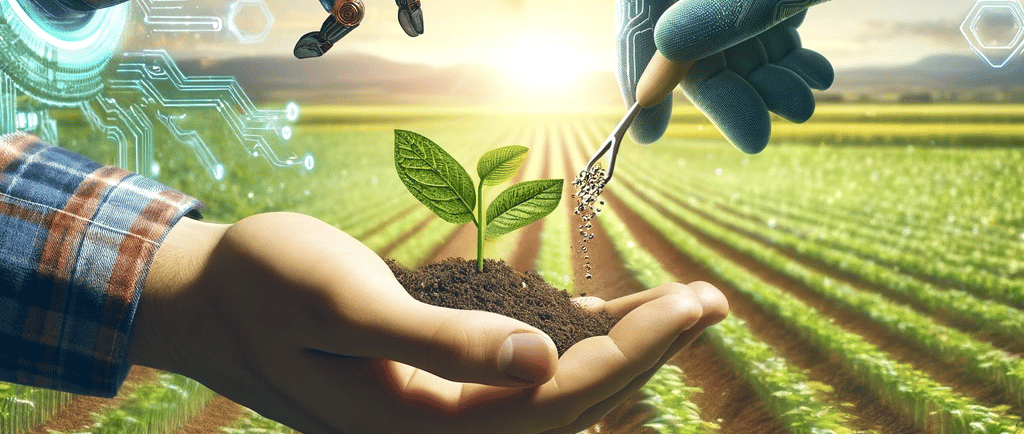Harvesting the Future: The Revolutionary Impact of AI in Agriculture
Dive into how Artificial Intelligence is transforming agriculture, enhancing crop yields, and promoting sustainable farming practices. This article explores the innovative ways AI is being used to revolutionize the agricultural sector, paving the way for a more efficient and eco-friendly future.
Faheem Hassan
1/12/20242 min read


Artificial Intelligence (AI) is playing a pivotal role in reshaping the agricultural sector. By integrating AI technologies, farmers and agribusinesses are unlocking new potentials in crop management, yield prediction, and resource optimization. Let's explore how AI is sowing the seeds of a technological revolution in agriculture.
AI-Driven Precision Farming: Precision farming, empowered by AI, allows for the meticulous management of crops at an unprecedented scale. AI algorithms analyze data from satellites, drones, and ground sensors to monitor soil health, crop growth, and weather conditions. This data-driven approach enables farmers to make informed decisions, ensuring optimal irrigation, fertilization, and pest control.
Yield Prediction and Crop Management: AI models are adept at predicting crop yields, helping farmers plan better for the market demands. By analyzing historical data and current conditions, these models can forecast the output, allowing for efficient resource allocation and supply chain management.
Automated Machinery and Robotics: AI is automating traditional farming practices. Autonomous tractors and drones, equipped with AI, are revolutionizing fieldwork. They perform tasks like seeding, weeding, and harvesting more efficiently and with less human intervention, reducing labor costs and increasing precision.
Disease Detection and Pest Control: AI-driven image recognition technologies are enabling early detection of crop diseases and pest infestations. By analyzing images of crops, AI systems can identify issues that are not easily visible to the human eye, allowing for timely and targeted intervention.
Sustainable Farming Practices: AI is a key player in promoting sustainable agriculture. By optimizing resource use and reducing waste, AI contributes to environmentally friendly farming practices. This is crucial in the face of climate change and the growing need for sustainable food production.
Challenges and Future Prospects: Despite its benefits, integrating AI in agriculture faces challenges, including the high costs of technology and the need for digital literacy among farmers. The future of AI in agriculture lies in making these technologies more accessible and user-friendly, ensuring that all farmers, irrespective of scale, can reap the benefits.
Conclusion: AI is not just modernizing agriculture; it's revolutionizing it. As AI technologies become more advanced and accessible, we can anticipate a future where agriculture is more productive, sustainable, and resilient. This technological revolution in farming is not just about higher yields but also about a healthier planet.
